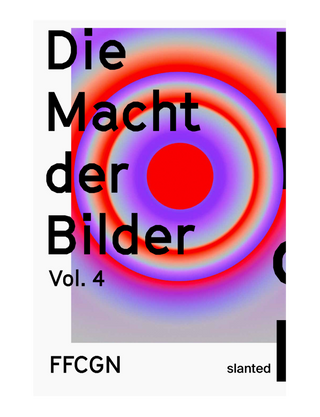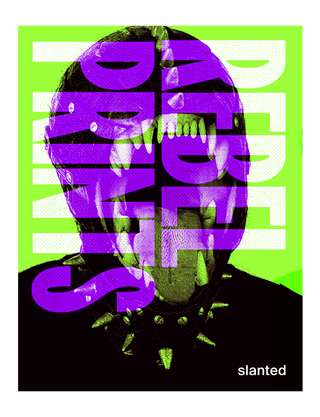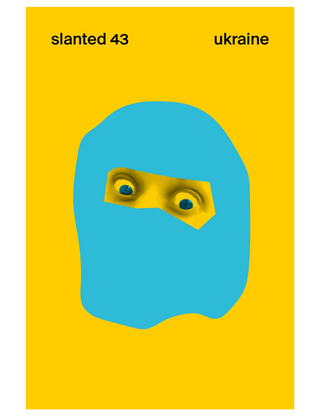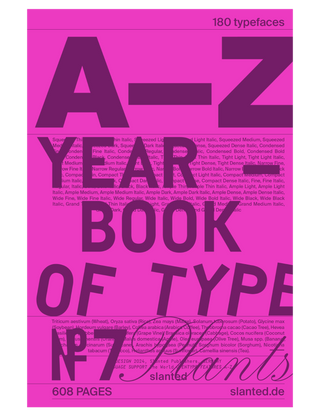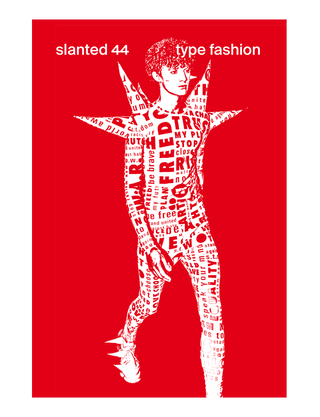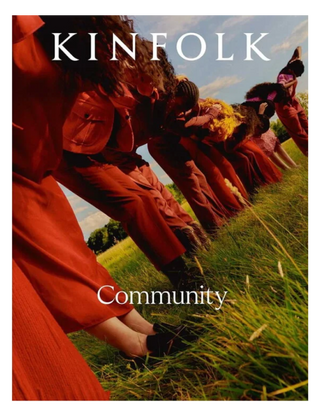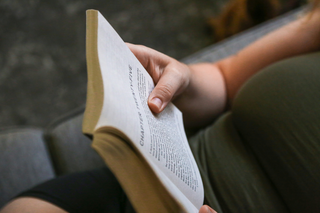When there is a war in your country, the answers to the questions about its causes and the culprits seem obvious. However, even in reality, where the truth is clear and undeniable, the world still often hesitates in its assessments. And perhaps this is what makes us want to turn to the stories of other wars — to understand how they started and who was to blame.
When the war between Russia and Ukraine began, I watched dozens of videos about various conflicts in history, looking for explanations, logic, similarities with our experience. But it was the books that became a source for me, which allowed me to clearly see the causes, consequences and what remains as a legacy.
In this article, I have collected documentary books that will help to understand how and why the most famous conflicts started, who is responsible for them and what lessons they have left for the world. It is important to read them not only to understand the past, but also so that no one gets confused in the definitions.
Books about war: Ukraine, Afghanistan, Cambodia, the world
In this article, I have collected 10 books about war covering different conflicts: war in Ukraine, war in Afghanistan, Cambodia, World War II and Russian colonialism.
Looking for a book that will change your perception of the world?
If you're looking for a story that will change your thinking, choose one of our nonfiction or reportage books.
👍 We have created one of the largest collections of non-fiction in Ukraine so that you can read about real events, analyze facts and develop critical thinking.
So, I invite you to get acquainted with my short review of 10 books about war.
Books about the war in Ukraine
Let's start with books about the war in Ukraine, because this conflict is the most painful and relevant for us Ukrainians today.
"Genocidal wars of Lenin-Stalin-Putin in Ukraine" by Mykola Doroshko
"Lenin-Stalin-Putin's Genocidal Wars in Ukraine" by Mykola Doroshko is a book that reveals the long-term history of aggression and destruction of the Ukrainian people by the Russian regimes. The author analyzes in detail the three stages of genocidal policy: Lenin's communist era, Stalinist repressions, including the Holodomor, and Russia's modern war against Ukraine, which began in 2014 and continues to this day.
The main idea of the book is to show the consistency of the ideology of Russian imperialism aimed at destroying Ukrainian identity, culture and statehood. The author justifies that these actions have a common goal — the subjugation and liquidation of Ukraine as an independent entity.
The content of the book covers:
- a historical overview of Soviet policy toward Ukraine, including methods of suppressing resistance and mass repressions;
- analysis of key moments of Stalinist genocide, such as the Holodomor of 1932–1933;
- an overview of Putin's current policies, which include the occupation of Crimea, the war in Donbas, and the full-scale invasion of 2022.
The book is based on facts, documents and testimonies, offering readers an in-depth analysis of the causes and consequences of this centuries-old struggle. It helps to understand that the current war is not an isolated case, but a continuation of a long-term policy of aggression directed against the Ukrainian nation.
"Invasion" by Luke Harding
The Invasion by Luke Harding is a powerful documentary chronicling the full-scale Russian invasion of Ukraine in 2022, written by a well-known British journalist. Luke Harding, a correspondent for The Guardian who has worked in Ukraine many times, offers readers an inside look at the events that shook the world.
The main ideas of the book:
- Show the scale of Russian aggression and its impact on Ukrainians — from ordinary citizens to the military.
- To reveal the essence of this war as a criminal invasion aimed at the destruction of Ukrainian statehood.
- To emphasize the heroism and resilience of the Ukrainian people in the struggle for freedom.
The book consists of reports, interviews and personal observations of Harding, who visited the front lines, in destroyed cities and among people who witnessed the terrible crimes of war. He describes the tragedies caused by Russian shelling, life under occupation, the massacres in Buch and Irpen, and the stories of those who resisted.
"Invasion" is a tribute to the strength of the Ukrainian spirit. The book allows readers from all over the world to see the war through the eyes of those who experienced it, and to understand why Ukraine is fighting for its independence.
"Bakhmut" by Myroslav Layuk
"Bakhmut" by Myroslav Layuk is an emotional and powerful prose that immerses the reader in the maelstrom of destructive war through the prism of the lives of ordinary people. The author depicts the city of Bakhmut as the epicenter of hostilities, where every house, street and basement becomes part of a special struggle for survival.
Laiuk tells about the events at the front, and about the inner worlds of people who are forced to live under shelling, preserving hope and dignity. It reveals the fears, courage and painful reality of what it means to stay alive amidst the ruins. Through the artistic combination of real events and creative fiction, the author conveys the feeling of defenselessness and strength of spirit of Ukrainians fighting for their land.
"Bahmut" is a story about everyone who found himself on the front lines of the struggle, and about the incredible power of human endurance in times of the deepest crisis.
"77 days of February" Reporters
77 Days of February Reporters is an investigation of the first days of Russia's full-scale invasion of Ukraine, written by a group of reporters who witnessed the shocking events. The book is based on real testimonies, interviews with people who were at the epicenter of the war, and on materials collected during work in war zones.
She describes in detail how Ukrainian civilians, soldiers and volunteers survived the first 77 days of the invasion, when the country was at its most critical moment, and how each day brought new challenges and tragedies. The book reveals not only the tactical and military aspects of war, but also deep human stories — from fear and pain to heroism and resilience.
"77 Days of February" examines the moments when the world changed forever: massive attacks on cities, destruction of infrastructure, the struggle for independence and an uncertain future. This is the story of how war became a part of everyday life for millions of Ukrainians and how they continued to fight for their freedom despite all the difficulties.
#Мариуполь #Nadia Nadia Sukhorukova
"#Мариуполь #Надия" by Nadia Sukhorukova is a fascinating and painful book that tells the story of the courage and resilience of a woman who survived one of the most tragic events in the modern history of Ukraine. The author, journalist and activist puts Mariupol at the center of her story, a city that became a symbol of resistance and the fight for freedom during the Russian aggression in 2022.
The book is based on real events and testimonies, when the author, being in the heart of events, survived shelling, a blockade, a humanitarian disaster and many difficulties. Sukhorukova describes the physical destruction and shows how war changes the inner world of people — how love, hope, and loss intertwine under conditions of extreme stress.
"#Mariupol #Hope" is a common story of all the city's residents who witnessed and participated in the tragedy experienced by Mariupol. The book highlights the struggle not only with the aggressor, but also with one's own fears and pain. It inspires hope for the future, despite the horrors of war, and reminds us of the importance of preserving humanity even in the darkest of times.
Books about the war in Afghanistan and Cambodia
And now, let's look at other conflicts that left deep traces in history. One such country is Afghanistan, where decades of war with American intervention have transformed the country. One of the most powerful books on this topic is "The American War in Afghanistan" .
"American War in Afghanistan" by Carter Malkasian
" The American War in Afghanistan" by Carter Malkasian analyzes in detail the 20-year involvement of the United States in the war in Afghanistan, viewing it as a complex geopolitical process that combined military strategies, political intrigues and the struggle for influence. Malkasian, based on testimonies of participants in the conflict, official documents and in-depth analysis, describes how the war in Afghanistan became the longest for the United States, and how it affected the fate of the Afghan people. He also draws attention to why the American coalition has failed to achieve stability in the country, despite enormous efforts and resources. This is a book that provides a deep understanding of the causes and consequences of this global conflict.
"Drunken Roosters, Crying Dogs" by Wojciech Tokhman
"Drunk Roosters, Crying Dogs" by Wojciech Tochman - the title of this book has a deep symbolic meaning and is related to the trauma experienced by Cambodia during the genocide committed by the Khmer Rouge in the 1970s. Wojciech Tochman chooses these images to convey the contrast between life and death, between natural harmony and the chaos brought about by war and violence.
The crowing of roosters is a symbol of morning, the beginning of a new day, hope and rebirth. However, in the context of the book, it can also indicate how life is trying to return to normalcy after massive destruction, even though the process turns out to be deeply traumatic. Roosters crowing at dawn can symbolize that human resilience and desire for life that does not disappear even after a disaster.
Dogs crying is a contrast to the first part of the title. Dogs are known to often be symbols of loyalty and protection, but in the context of this book, their cries reflect suffering, pain, and loss. It symbolizes the pain experienced by people who have lost their loved ones and shows how even the most loyal creatures fall victim to the brutal conditions of war and genocide.
Thus, the title of Tokhman's book indicates a broken harmony and a mixture of opposites — an attempt to find hope in a world where suffering and destruction have become an integral part of reality. It is a question of how humanity can be restored in a world that has gone through the endless atrocities of war.
Books about world wars and colonialism of the under-empire
Now that we have examined the narratives of war in Afghanistan and Cambodia, let us return to the broader historical and political contexts to understand how wars and imperialism shape the modern world. The two books that we will consider next - "Russian Colonialism 101" by Maxim Eristavi and "Behind the scenes of the war. Stalin, the Nazis and the West" by Laurence Rhys - they allow a deeper understanding of the dynamics of forces and mechanisms underlying modern geopolitical confrontations.
These books are united by the common theme of imperialism and colonialism, which had a devastating impact on dozens of countries, including Ukraine, and contributed to the formation of deep conflicts that we observe even today.
"Russian Colonialism 101" by Maxim Eristavi
💡This publication is in English, and we offer it on our website for those who want to get a detailed understanding of Russia's colonial legacy and its influence on modern international conflicts, in particular in Ukraine.
Maxim Eristavi's "Russian Colonialism 101" offers us an analysis of Russia's colonial legacy. Eristavi, a journalist and publicist who has been observing political processes in post-Soviet countries for many years, in this book examines how Russia used colonial practices to extend its influence over neighboring nations, and how these methods have become entrenched in its modern foreign policy.
The author provides an in-depth analysis of how, starting from the imperial period, Russia shaped its colonial policy, integrating the occupied territories into its empire and suppressing the national identities of the local peoples. Eristavi especially emphasizes how these processes continue to this day, and the wars waged by Russia in Ukraine, Georgia and other parts of the post-Soviet space are a continuation of colonial strategies.
The book "Russian Colonialism 101" also draws attention to how the former Soviet republics are trying to deal with these historical realities and restore their national identities in the conditions of modern conflicts.
"Behind the scenes of the war" by Laurence Rhys
Laurence Rhys's Behind the Scenes of the War examines how political intrigue and ideologies affected international relations during World War II, particularly the relationship between Stalin, the Nazis, and the West. The author, a British historian and author of several works on the world wars, in this book reveals the mechanisms behind the decisions of Stalin, the Nazi leaders and the Western democracies, and shows how their interaction and confrontation determined the course of the war and the future of Europe.
Rees analyzes the most important turning points in the war, including the relationship between Stalin and Hitler before Nazi Germany invaded the USSR, and examines the role of the Western Allies during this period. It shows how each of these players manipulated the situation to achieve their strategic goals, sometimes even to the detriment of their allies.
The book focuses on the political ideologies that led leaders to choose between cooperation and conflict, and how these decisions affected war strategies and the consequences for humanity. Rhys reduces historical events to the level of human emotions and decisions, which, in turn, helps to better understand how such a terrible and destructive phenomenon as the Second World War was the result of political, human and moral choices.
Conclusion
Why do wars happen? How do they affect people? What lessons should humanity learn to avoid such tragedies? The answer is in the books.
"Lenin-Stalin-Putin's genocidal wars in Ukraine" by Mykola Doroshka helps to see the essence of Russian aggression against the Ukrainian people,
Luke Harding's Invasion is a poignant chronicle of a modern war that changed the world.
Studies of historical conflicts in Afghanistan and Cambodia enrich our view of how wars shape societies and affect people's destinies.
When we talk about the importance of books, it is worth mentioning their unique role in times of war. This topic is expertly explored by Andrew Pettigrew in his book The Book at War: Libraries and Readers in Wartime .
"The book is at war. Libraries and Wartime Readers" by Andrew Pettigrew
The last book in our selection is "The book at war. Libraries and Wartime Readers' by Andrew Pettigrew - explores how war changes attitudes towards books, reading and education, revealing the role of literature in preserving humanity in the face of war.
This is a reflection on how books and knowledge help people survive the darkest times. Pettigrew shows how libraries became centers of resistance during wartime conflicts.
The book spans different historical contexts, including the First and Second World Wars, showing how on various fronts—from soldiers to civilians—books served as a source of comfort, a means of learning, and even a way of preserving identity.
Books help to overcome the psychological consequences of war, and I hope they will help you to survive its horrors.
Looking to read?
Tyra aims to offer the largest selection of non-fiction in Ukraine. In our collection you will find only those books that we have personally chosen and consider important. The main focus is on non-fiction, but we also offer design , business , fiction and children's books .
So what book will you read next?

